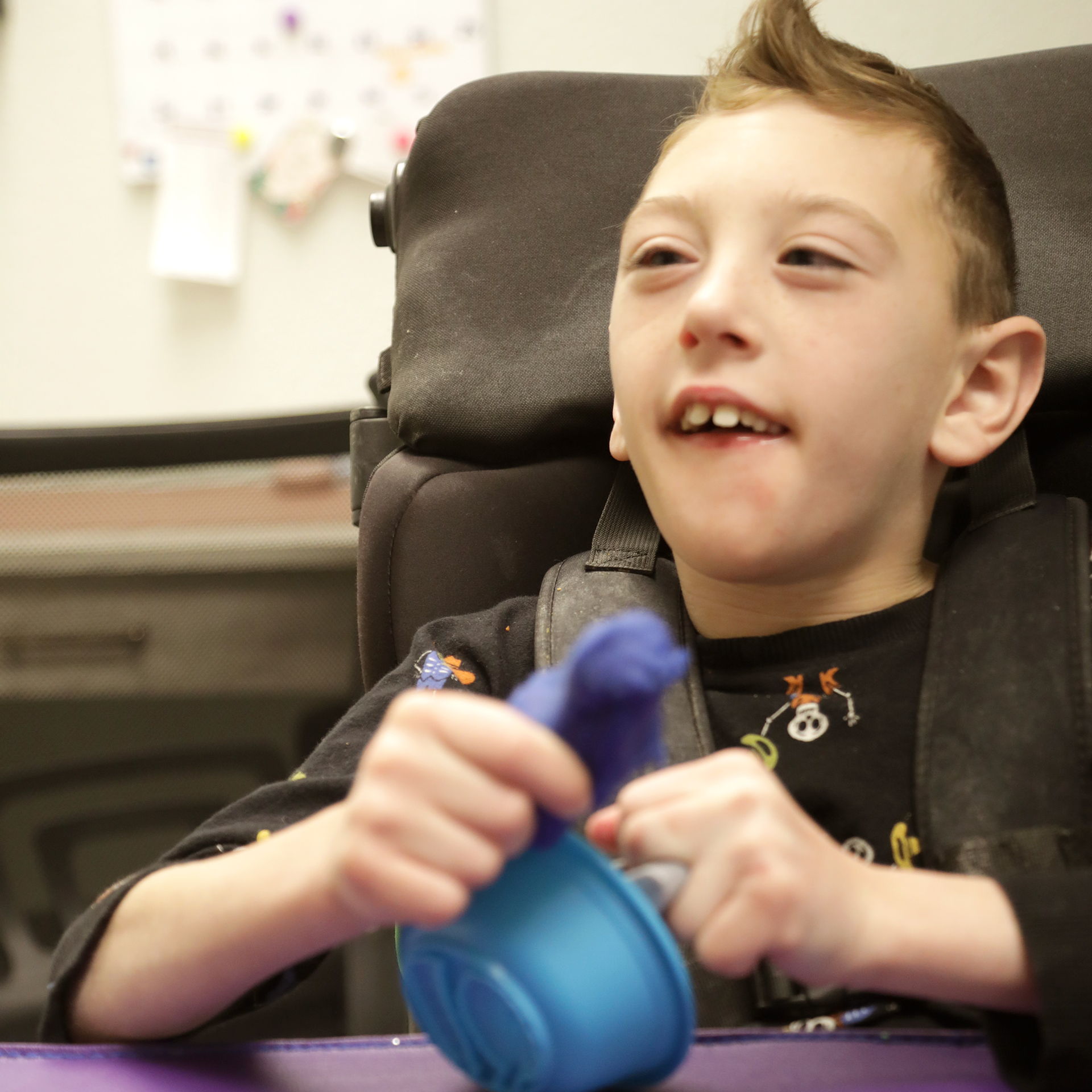CBD Oil for Autism


Understanding CBD and Its Emerging Role in Autism Treatment
Cannabidiol (CBD), a non-psychoactive compound derived from the cannabis plant, has garnered increasing attention as a potential therapeutic option for autism spectrum disorder (ASD). Driven by preliminary research, anecdotal reports, and a growing body of scientific studies, CBD products are being explored for their capacity to alleviate various behavioral and social challenges associated with autism. This article delves into the current scientific evidence, mechanisms of action, safety considerations, and evolving medical perspectives surrounding CBD oil in the context of autism.
Current Evidence and Research on CBD for Autism

What is currently considered the most effective therapy for autism?
Currently, behavioral interventions like Applied Behavior Analysis (ABA) are regarded as the most evidence-supported treatments for autism. These therapies focus on reinforcing positive behaviors and developing new skills to improve daily functioning. Early diagnosis, combined with personalized intervention models like the Early Start Denver Model (ESDM) or Lovaas, can significantly influence developmental outcomes. Complementary therapies such as speech, occupational, and physical therapies address communication, sensory, and motor challenges specific to each individual. Medications are available but mainly target specific symptoms like irritability and hyperactivity; they do not treat core autism traits. Overall, combining early, tailored behavioral therapies with supportive interventions forms the most effective approach, emphasizing the need for individualized treatment plans.
How does CBD work in the body to potentially help individuals with autism?
CBD interacts primarily with the body's endocannabinoid system (ECS), which plays a vital role in regulating mood, anxiety, and social behavior. It modulates neurotransmitters such as glutamate and GABA, influencing excitatory and inhibitory signals in brain regions associated with ASD, like the prefrontal cortex. CBD increases levels of endogenous cannabinoids like anandamide, often found at low levels in people with autism, which may enhance social motivation and emotional regulation. Further, CBD binds to multiple receptors such as serotonin 5-HT1A, TRPV1, and GPR55, contributing to its calming and neuroprotective effects. Additionally, CBD may promote hormones like oxytocin, which are involved in social bonding and stress reduction, potentially alleviating some core symptoms of autism.
What is the current scientific research and clinical evidence regarding the use of CBD oil for autism spectrum disorder?
Recent studies suggest CBD-rich cannabis may improve social interactions, reduce aggression, and help manage behavioral issues in children with ASD. Open-label studies and case reports show that CBD can lead to reductions in negative behaviors, particularly in those with severe symptoms, with minimal side effects. A systematic review and meta-analysis of randomized controlled trials involving 276 participants indicate that CBD significantly improves social responsiveness and reduces disruptive behaviors. For example, improvements are noted in assessments like the Autism Diagnostic Observation Schedule (ADOS), Social Responsiveness Scale (SRS), and Vineland Adaptive Behavior Scales. However, these findings are preliminary and call for confirmation through larger, double-blind, placebo-controlled studies. Existing research highlights promising benefits but underscores the necessity for further rigorous investigation to establish safety, optimal dosing, and long-term effects.
Is there scientific evidence supporting the use of CBD oil for speech delays in autism?
Currently, there is limited direct evidence supporting CBD as a treatment for speech delays specifically in autism. Most research concentrates on CBD’s effects on related symptoms, such as anxiety and behavioral problems, which may indirectly influence speech development. Some case reports and small-scale studies suggest that CBD might enhance social interaction and reduce disruptive behaviors, potentially creating a more conducive environment for speech development. Yet, no large-scale or controlled studies specifically confirm CBD's efficacy in improving speech delays. Consequently, medical professionals advise caution, and more research is essential to establish CBD’s role in enhancing speech abilities.
Are there specific cannabis strains, such as Charlotte's Web, used for autism, and what is their relevance?
Yes, strains like Charlotte’s Web are commonly used due to their high CBD and low THC content, making them suitable for children. Charlotte’s Web gained notoriety after helping a girl named Charlotte Figi reduce her seizures. Many families use CBD extracts from such strains to help manage symptoms like anxiety, aggression, and sleep issues. While anecdotal reports are optimistic, the scientific evidence remains limited. Companies like DeFloria are developing formulations with multiple cannabinoids, which are undergoing clinical trials. Overall, these strains are relevant as a non-psychoactive option with potential benefits for autism symptoms, but comprehensive clinical data is still needed.
What is the potential role of CBG or other cannabinoids besides CBD in autism treatment?
Research into cannabinoids beyond CBD, such as CBG (cannabigerol) and CBDV (cannabidivarin), is in early stages. Preliminary findings suggest these compounds could have neuroprotective, anti-inflammatory, and anti-seizure properties. They might help modulate neurotransmitter systems involved in ASD, such as glutamate and GABA, offering additional therapeutic avenues. Some small studies indicate that these cannabinoids could provide benefits, especially in reducing hyperactivity and sensory issues. However, more rigorous, large-scale clinical trials are required to validate their safety and efficacy.
Is there scientific evidence supporting the use of CBD oil for sensory processing disorder or PDA in autism?
Evidence for CBD’s effectiveness in treating sensory processing disorder or pathological demand avoidance (PDA) in autism is currently anecdotal and limited. Some families report improvements in sensory overload and anxiety, which could facilitate better sensory integration. CBD’s influence on neurotransmitter systems and the endocannabinoid system supports its potential role. Nevertheless, large, controlled scientific studies are lacking, and organizations like the American Academy of Child and Adolescent Psychiatry recommend caution. Further research is needed before recommending CBD for these specific issues.
What are the safety, efficacy, and potential benefits of CBD oil for autism spectrum disorder?
CBD appears generally safe and well tolerated, with most adverse effects being mild, such as drowsiness or gastrointestinal upset. Preliminary studies and parental reports suggest benefits in reducing anxiety, hyperactivity, aggression, and improving sleep. The biological basis involves CBD’s modulation of the endocannabinoid system, which is often dysregulated in ASD. However, current evidence is limited, and large-scale, placebo-controlled trials are required to establish definitive efficacy. Medical supervision and quality assurance of products are essential for safe use. Without conclusive evidence, CBD should be considered as a complementary approach rather than a primary treatment.
Can CBD help manage sensory issues associated with autism?
Anecdotal data and preliminary research imply that CBD might help reduce sensory overload by diminishing anxiety and promoting calmness. CBD's effects on neurotransmitter regulation could improve sensory processing, though scientific confirmation is lacking. Careful dosing and professional guidance are crucial, as responses vary among individuals. More research is needed to substantiate these effects and identify optimal treatment protocols.
Can CBD help reduce aggression or overstimulation in individuals with autism?
Many reports and early studies suggest that CBD can decrease aggressive behaviors and overstimulation. CBD's calming effects on the nervous system may reduce agitation, physical outbursts, and irritability. Clinical trials are underway to formally evaluate its efficacy in preventing or reducing these behaviors. While promising, caregivers should consult healthcare professionals to ensure safe and appropriate use.
What considerations should be taken into account when using CBD oil for autism, including safety, legal aspects, and medical guidance?
Safety and legality are paramount; users must ensure products are from reputable sources with proper lab testing. Legal status varies widely by jurisdiction, necessitating compliance with local laws. Medical guidance is essential to determine appropriate dosing, monitor side effects, and avoid drug interactions. CBD products must be carefully selected, focusing on high CBD:THC ratios to avoid psychoactive effects. Ongoing professional supervision helps optimize outcomes and manage potential risks.
What is the typical dosage of CBD for children with autism?
Doses in studies vary, but generally range from 1 to 20 mg/kg/day. In clinical trials, doses up to approximately 16 mg/kg/day have been used safely. For clinical use, starting with low doses (such as 0.5-1 mg/kg) and gradually titrating upwards is advisable. In case reports, doses around 4-8 mg per kilogram per day are common, adjusted based on response and tolerability. Personalized dosing under medical supervision remains essential due to variability in individual response and limited long-term safety data.
Summary and Outlook on CBD Use for Autism
While preliminary research and anecdotal experiences suggest that CBD oil may offer hope for alleviating certain autism symptoms, the current evidence remains limited and calls for cautious optimism. Ongoing and future large-scale, methodologically rigorous clinical trials are essential to establish definitive safety and efficacy profiles, optimal dosing strategies, and long-term effects. Healthcare providers and families should approach CBD use with careful consideration of legal, safety, and medical factors, prioritizing quality products and professional guidance. As scientific understanding advances, CBD could become a valuable component of a comprehensive, individualized treatment plan that enhances the quality of life for many individuals with autism.
References
- Cannabidiol in Treatment of Autism Spectrum Disorder
- Children and adolescents with ASD treated with CBD-rich ...
- Is there research on the use of cannabis products with ...
- Cannabis & CBD fact sheet
- Terpene-Enriched CBD oil for treating autism-derived ...
- Cannabis extract can improve behavior of children and ...
- CBD Oil for Autism: Can It Help?
- One in Five Autism Caregivers Give Their Child CBD ...
- Benefits and Considerations of Using CBD for ADHD
- CBD-enriched cannabis for autism spectrum disorder
Recent articles

What to Expect at Your First Therapy Session
Discover what your child’s first therapy session looks like, from rapport building to goal setting, and how families can feel confident starting care.

Celebrating Small Wins: How Therapy Helps Kids Build Confidence All Year Long
Learn why small wins in therapy matter, how they boost your child’s confidence, and simple ways families can celebrate progress all year long.

Empowering Missoula Children to Grow With Confidence and Connection
Learn how ABA therapy in Missoula helps children build communication, independence, and confidence through personalized, family‑centered support at Advanced Therapy Clinic.

Compassionate Pediatric Therapy in Butte, Montana
A welcoming place where every child’s potential is celebrated

How Pediatric Therapy Helps Kids Thrive across Montana and Wyoming
A supportive guide for families exploring therapy options in Billings, Butte, Missoula or Sheridan.

How to Choose the Right Pediatric Therapy Clinic in Billings, Montana
A Parent‑Friendly Guide To Finding The Best Support For Your Child

